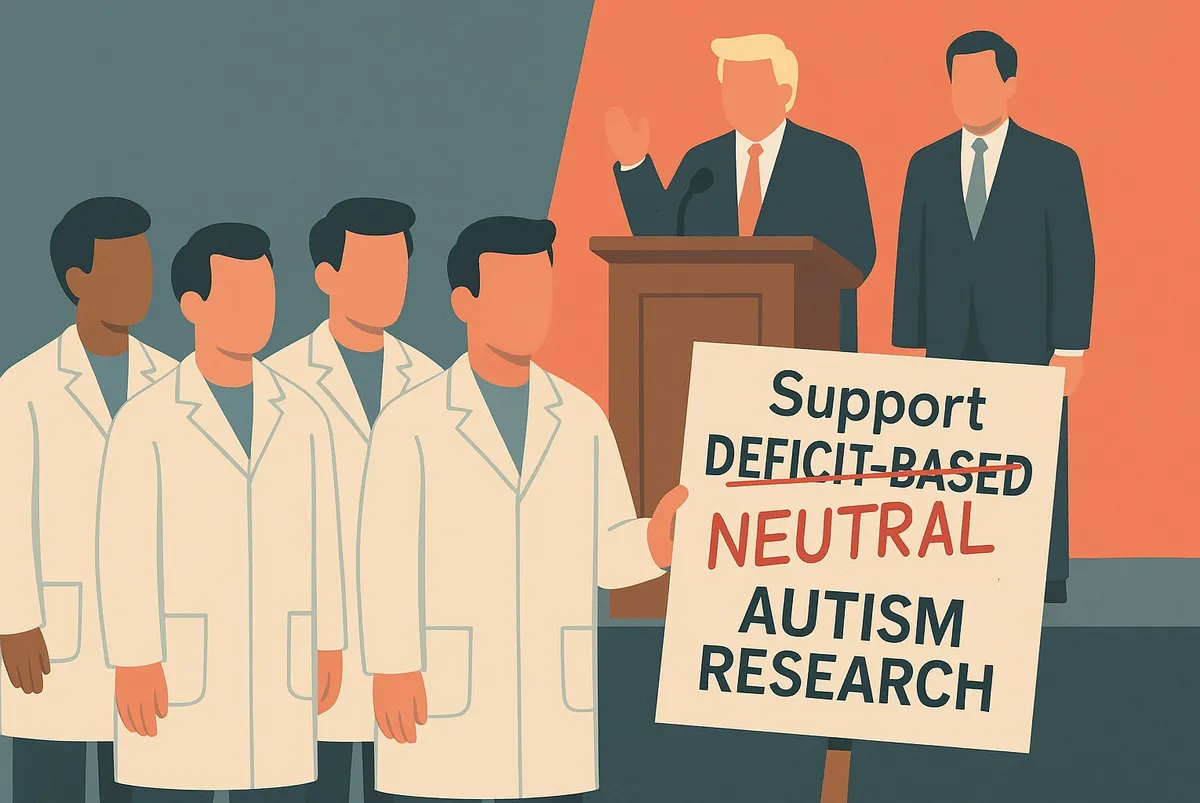Trump’s Autism Paradox: 'Neutral' Science on a Stage of Harm
 "Neutrality" as cover
"Neutrality" as cover
In the same breath that Donald Trump warned pregnant women against Tylenol, Robert F. Kennedy Jr. and the NIH announced $50 million for autism research. The contradiction was glaring. One hand spread unproven claims that mothers cause autism. The other handed out grant checks to scientists tasked with finding autism’s “causes.” The Chronicle of Higher Education framed this as a surreal paradox. For autistic people, it looked more like a pattern.
The scientists quoted in the piece worked hard to distance themselves from the White House rhetoric. They called the Tylenol scare “appalling,” “bizarre,” “unprecedented.” They also emphasized their gratitude for funding during a year when thousands of NIH grants were cut. Between the lines ran a defensive refrain: our research is neutral, our science is not harmful.
But neutrality is never neutral when the frame itself defines autism as a problem to be solved. A study on “risk factors” does not escape harm simply because the language is polite. Mothers sitting in clinics are already carrying new guilt from Trump’s words. Autistic people remain the objects of investigation rather than subjects of knowledge. Science is not neutral when it reproduces deficit logics that hurt the very people it claims to serve.
Hypocrisy as engine
The Chronicle called Trump's and RFK Jr.'s announcement hypocrisy: an administration funding rigorous research while spreading misinformation. Yet hypocrisy here is not just irony, it is structure. Politicians gain credibility by standing next to respected scientists, even as they undermine science with conspiracy. Scientists secure survival money by accepting deficit-framed projects, even as they call the rhetoric “hard to stomach.” Each side relies on the other. Each insists the harm belongs to someone else.
This arrangement does not cancel harm, it compounds it. Loud harm and quiet harm function together. Trump blames autism on mothers trying to alleviate their pain. Researchers collect samples to prove what “causes” it. Both frame autism as pathology, both leave autistic voices absent, both sustain a system where autism research exists with autistic voices rarely a part of the conversation.
The silence inside the headline
The Chronicle headline promised insight into what it is like to be an “autism scientist” funded by Trump. What it delivered was the voice of scientists who study autism, not autistic scientists themselves. That absence is telling. The piece reads like a paradox of credibility, but the real paradox is deeper: autistic researchers are still invisible in the very moment their lives and communities are being pathologized.
A closing question
What would it look like if $50 million were given not to prove what causes autism, but to fund the priorities of people living with autism in a world hostile to that neurotype? What if research started with support priorities instead of risk factors? Academic "neutrality" insists those questions are unrealistic. Hypocrisy insists they are beside the point. But until they are asked, science will keep claiming innocence while standing on the same stage as blame.